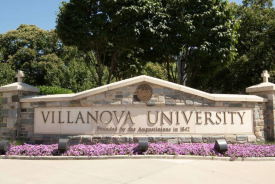Universities are for Learning, Discussion and Growth, Stop Treating College Students Like Children
ByThe university's atmosphere has changed a lot in the last 50 years. Then, going to college meant going out into the big world and taking responsibility for your life as an adult. It was the beginning of independence, discovery and maturity. Today, universities are taking away the freedom as much as they can thinking that these young men and women cannot be trusted to take charge of their own life in campus.
Today's university environment is a far cry from the one that Frank Furedi remembers.
Mr. Furedi, emeritus professor of sociology at the University of Kent wrote in the Times Higher Education (THE) his recollection of how different it was then when we attended college at McGill University back in 1965. He observed that back then, "Universities were far more tolerant of diverse views and opinions than the rest of society." They questioned everything to open up the school to new ideas.
Four years later, he did postgraduate work at the Soas, University of London where in the climate was familiar. "The 1960s radicals organised free-speech movements and regarded any form of censorship as unacceptable. They were rule breakers rather than rule creators, and they refused to recognise the right of university administrators to exercise any authority over their behaviour."
To Frank Furedi the starking contrast between his generation and this one is the infantilization of the the academe. Today's activists are demanding safe spaces from the sensitive topics and trigger warnings to words some students might find to be offensive or depressing. Back in the day, student activists were fighting for freedom, today some of them are demanding comfort.
Instead of allowing college students to live and make decisions as adults, universities are promoting mandatory activities to students and their parents.
In Princeton for example, freshmen students are required to use the residential college system. There are already 6 buildings for the system to date, it is planned however to add one more and to expand the coverage of the system to include sophomores. The planned expansion doesn't only mean adding more buildings for student housing, it would also include requiring both freshmen and sophomores to purchase a meal plan as part of their "Princeton experience".
Beni Snow, a sophomore in the university wrote at Princetonian, "The University should be in the business of furthering knowledge through research and education. I fail to see how mandating where we live falls into the equation. We're Princeton students, not children. Let us live how we want."
Matt Johnson also expressed concern over the effects of treating students like children. It is turning our universities into nurseries, citing that, "While you're digging into the Play-Doh, munching on cookies, blowing bubbles and coloring inside the lines - yes, these were actually the featured attractions at a safe space set up for Brown University students who were afraid of being triggered by a debate about sexual assault in fall 2014 - the conversation is going on without you."
A few centuries back, philosopher Immanuel Kant answered the question, "What is Enlightenment?". In the first paragraph he wrote, "Sapere aude." Dare to know. Kant asked the reader to "have the courage to use your own understanding" without another's guidance.
This is why students go to college and attend higher education institutions - to be enlightened and to know more so they can grow and not just to be "employable" but to contribute to the common good.
Kant emphasized that in order to be enlightened, there must be freedom and that the public must be free to use reason at all times. However, when we dictate how students in the university should live and provide them with an escape when classroom discussions get overwhelming, aren't we preventing their growth?
© 2026 University Herald, All rights reserved. Do not reproduce without permission.








